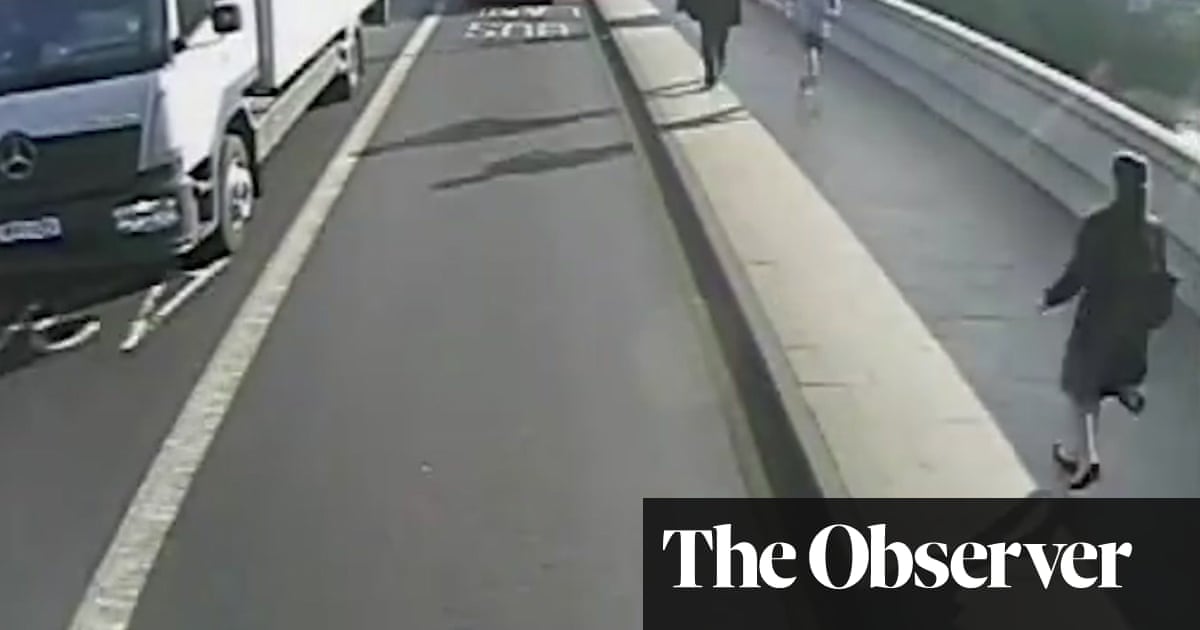When a jogger on London’s Putney Bridge was caught by CCTV as he callously pushed a stranger into the path of a double decker bus seven years ago, the act of random violence stunned the world. Shocking still images from the footage appeared on the front pages of international newspapers and, in the following months, leagues of amateur online detectives scrutinised the running style of the anonymous offender, from his clenched fists to his straight back, for clues to the identity of the “Putney Pusher”.
Only the driver of the number 430 bus, Olivier Salbris, came forward publicly. As he drove over the Thames that day in early May he had averted disaster by swiftly swerving away from the 33-year-old female pedestrian and so he was widely saluted, appearing on morning television show sofas. But the true cause of the strange incident remains a mystery.
Now police hope a play telling the story this month on a stage less than two miles from the scene of the crime will prompt someone with information to finally come forward. Investigating officers initially arrested two suspects in succession, but both men were released and the case was officially closed six years ago, despite the clarity of the CCTV image.
“I often cross the bridge and wonder why that one individual act mattered so much to so many people,” said Lydia Sax, artistic director at OSO Arts Centre in Barnes, where the play will run from 17 April. “The severity of the attack was part of it, I think. And the fact it was never solved.”
The play, Once Upon a Bridge, approaches the mystery through the perspective of the three people immediately involved: the runner, the victim and the driver. Written by Sonya Kelly, it examines what lies behind such selfish encounters between strangers.
“When you look at the CCTV closely there’s a moment you can freeze-frame where the two figures almost seem to waltz together before he pushes her over. I kept thinking about that,” said Kelly. “But, in fact, of course, he nearly killed her. He must have known that she fell, but doesn’t look back. He believed he was not being watched. It seems likely he only realised she fell in front of a bus when he saw the video later.”
Kelly took several years to write the play: “I decided to write it as historical fiction, to open it up and look at our changing relationship with justice, anonymity and with consequences.” As she wrote, new theories emerged, with some, including the Metropolitan police, now convinced it must have been a visiting foreign businessman.
Sax, who directs the 90-minute play, feels its fictional elements will offer a slice of divine justice to audiences, since the jogger “loses everything” because of his guilt. “It is timely, not just because this guy has still got away with it, but because it could happen again. I also hope it generates some understanding, arguing that we may all commit at least some micro-aggressions, like pushing to get off a bus or on to a train, when we are just thinking of ourselves,” she said.
The Met has confirmed this weekend that, although the investigation is closed, anyone with fresh information should contact them directly.
“The footage is clear,” said Kelly. “If he was, say, my cousin I would know him. So if there is somebody watching the play this month, thinking they have more information, I hope they will come forward.”







